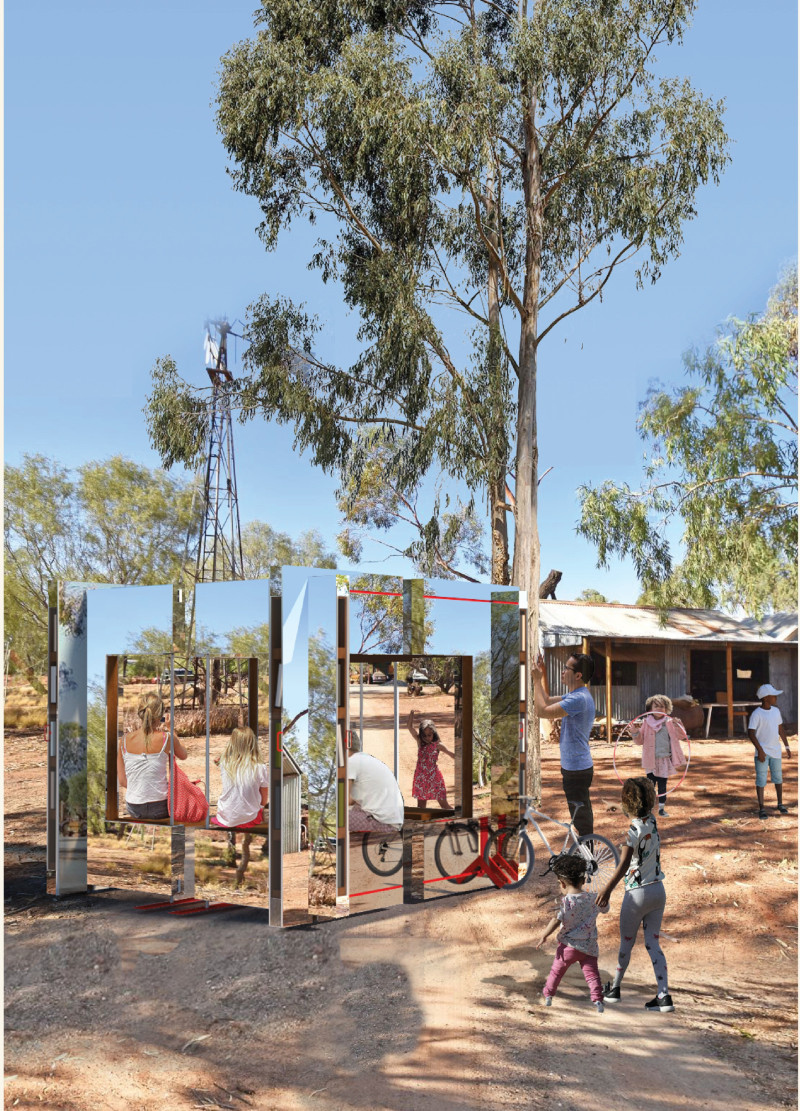5 key facts about this project
The Book Stop, located in Alice Springs NT 0872, Australia, is a public space that promotes reading and social interaction among community members. It is designed around the relationship between people and books. This connection is expressed through a unique architectural form that encourages engagement. As users interact with the building, it unfolds in ways that mimic the action of turning pages in a book, creating an inviting atmosphere for all.
Spatial Transformation
The design is marked by closed spines that react to user participation. When individuals engage, these spines pivot and open up, creating a versatile space that serves multiple purposes. This flexibility is central to the design, allowing for both quiet reading and lively gatherings.
Integrated Features
Included in each spine are book deposits with individual sleeves. Each sleeve has a unique QR code for easy identification and access. The deposits are protected by water-tight perspex doors, which help keep books safe from the elements. Seating areas beside the spines are equipped with sunshades, providing comfort and encouraging people to gather and socialize.
Sustainable Transportation
Each main spine features a recessed bike rack that allows users to secure their bicycles. This element promotes eco-friendly transport and enhances the usability of the space. The design supports people who cycle, making it easier to visit the area without needing a car.
Visual Integration
The external surfaces of The Book Stop are clad in mirrors, which reflect the surrounding environment. This feature creates a strong connection between the building and its context, allowing it to engage visually with the community. Locally sourced timber is used for the reveals, reinforcing the relationship between the structure and its natural setting.
In addition to the functional elements, red accents highlight features meant for interaction, such as handles and tracks. This thoughtful use of color guides users and emphasizes the building's purpose. The design creates a space that is both practical and approachable, fostering a sense of community and encouraging a love for reading.






































